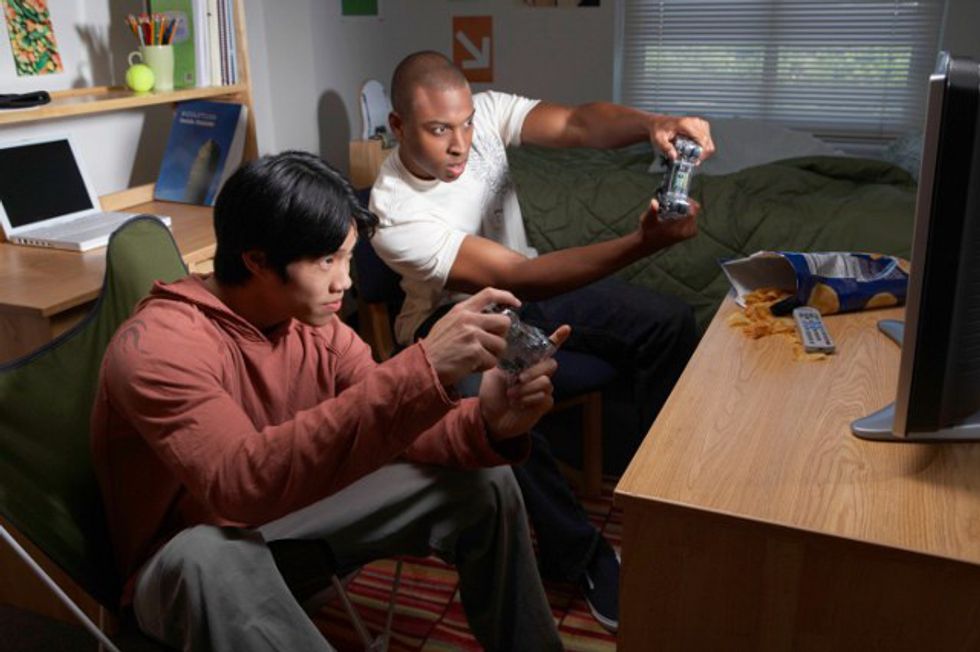In a 1992 paper Experimental Brain Research (Vol. 91, No. 1, pages 176-180) Dr. Giacomo Rizzolattii and his colleagues described their study of motor neuron function in macaque monkeys as they performed certain tasks like reaching for a peanut and they found that some neurons (called F5) fired in the premotor cortex of their brains as they performed such actions. What the researchers were not expecting to find was that even when the monkeys did not reach for a peanut and only a researcher reached for a peanut the same subset of neurons in their premotor cortex fired. Neurons that merely fire during observation have been termed mirror neurons, and these neurons may play a role in why we feel deeply, deeply involved when we are…
Watching football...
Or a movie...
Or playing video games...
Also...
Why we feel sad when we see others sad...
And happy when others are happy.
Emotion is a complex biopsychosocial network that cannot be oversimplified with an explanation of solely mirror neurons; yet, mirror neurons allow us to walk in another person’s shoes and this seemingly biologically hardwired empathy is what helps us build relationships that function as stepping stones to a stronger community.


























